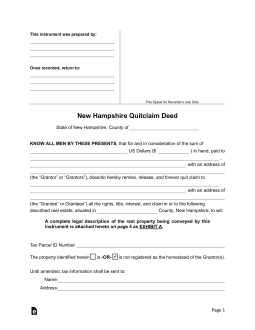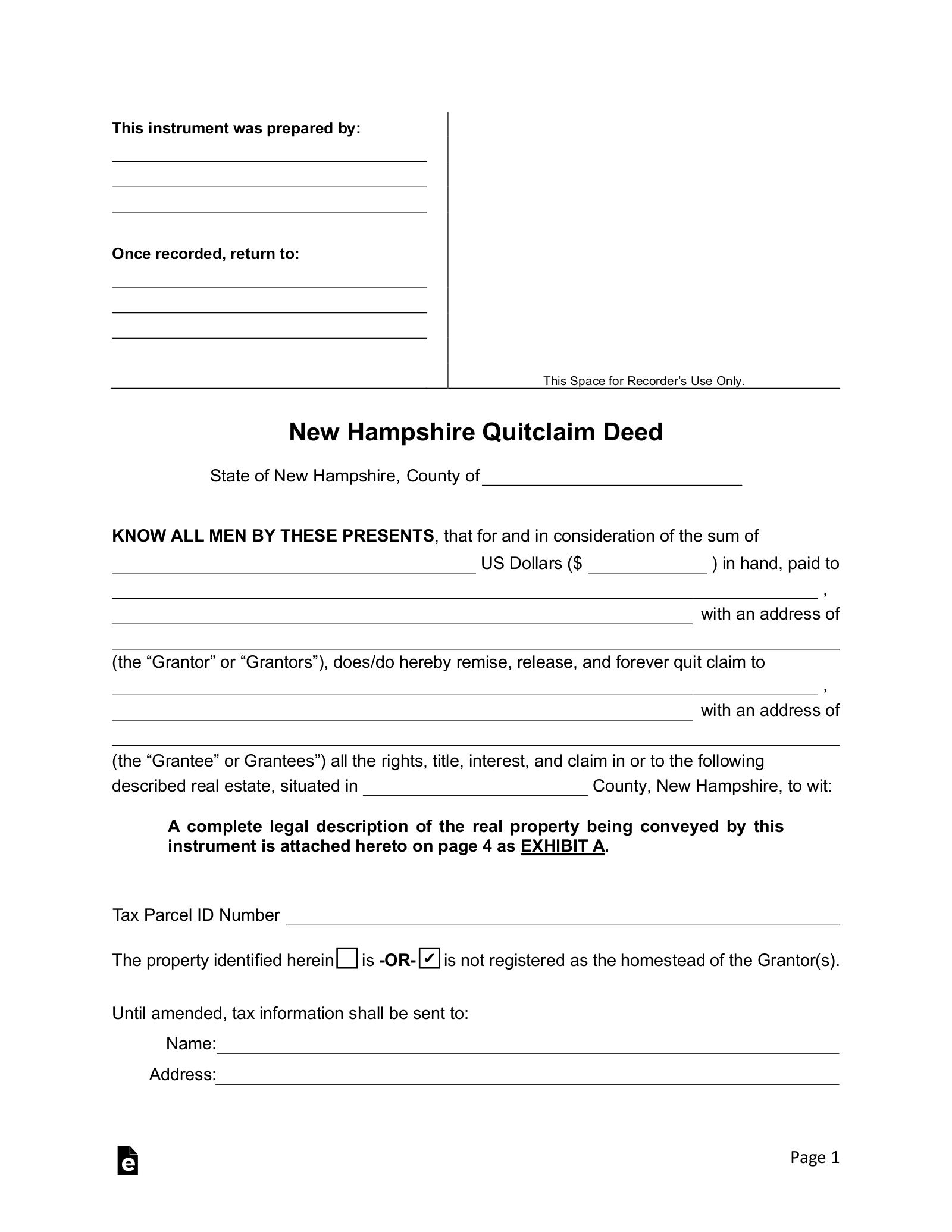Updated April 12, 2024
A New Hampshire quit claim deed is used to convey property between two parties but offers no guarantee to the title of the property. The form only transfers the ownership from the Grantor(s) stated, and not who the actual owner may be or any prior owners. This document will require the name and address of the grantor and grantee as well as the consideration paid and the legal description of the property.
Laws
- Recording – The form must be filed at the County Recorder’s Office where the real estate is located.[1]
- Signing – To be signed in the presence of a notary public (grantor(s) only).[2]
- Statute (N.H. Rev. Stat. § 477:28)


